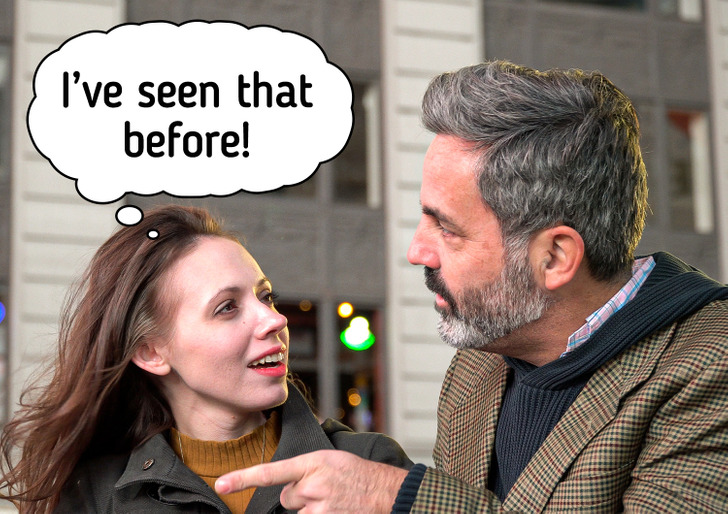Why We Experience Déjà Vu
Perhaps many of us have experienced moments when a current situation seems like something we experienced or something that we have seen in the past. This curious feeling is called déjà vu.
At 5-Minute Crafts, we decided to find out what it is and what causes it.
Definition
The word “déjà vu” comes from French and means “already seen.” This is an anomaly of our memory which makes us feel like what is happening is similar to something we remember, but we can’t determine or remember the time or place in which this situation took place.
There are 2 types of déjà vu: the pathological déjà vu, which is a symptom of certain neurological diseases, and the non-pathological one, which healthy people experience from time to time.
Facts
A few curious facts are associated with déjà vu:
- People who travel a lot and watch movies frequently experience déjà vu more often than others.
- The ability to experience déjà vu decreases with age.
- Those who are tired or stressed experience déjà vu more often.
- There is an opposite experience called jamais vu which means that a person can’t recognize a situation they’ve experienced before.
- There are also a few other experiences similar to déjà vu: déjà rêvé is the feeling that you’ve seen something you’re experiencing now in a dream, and déjà entendu is the experience when you feel sure you’ve heard something but can’t remember whether it was real or imagined.
Causes
The pathological déjà vu can be caused by problems and diseases (like epilepsy) associated with the temporal lobe of the brain — this is where our memories are stored.
People who are tired or stressed can experience déjà vu because exhaustion affects both short-term and long-term memory, clouding it.
Some cases of déjà vu can be explained by dreams, meaning that a familiar situation didn’t actually happen, but something similar previously occurred in a dream.
There is also a theory that déjà vu can be caused by the so-called “dual processing,” when signals from the senses enter our brain not once, but twice, with a delay of milliseconds. And when these signals are not synchronized properly, the brain perceives the second signal as a memory of the first one.

